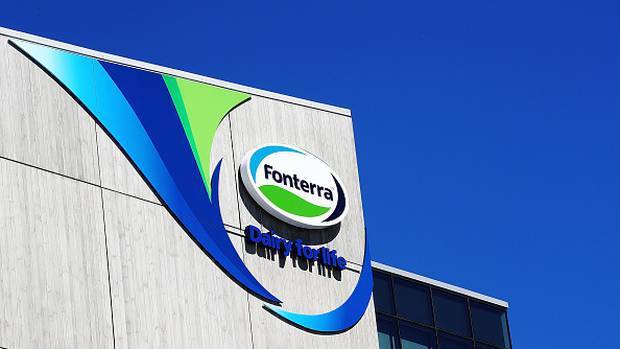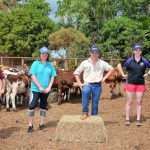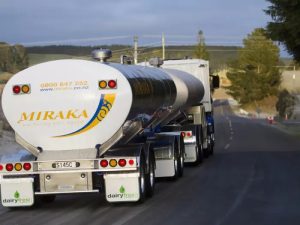
The forecast payout to farmers for milk was now $7.00-$7.60 per kgMS for the 2019-2020 season.
Fonterra chairman John Monaghan said the co-op had continued to earn good prices for its milk.
Whole milk powder prices, which were a key driver of milk price, were at their highest level in three years.
The company’s first quarter earnings ending in October, before interest and tax, were up $233 million to $259m, from $26m the year earlier.
It said normalised earnings, which better reflected the underlying performance of the business, rose significantly to $171m, from $26m the year earlier, with a 14.5 percent improvement in gross margins.
The co-op had also cut costs by $104m and said it remains focused on reducing debt.
“This will require us to achieve a gross margin of $3 billion, further reduce operating expenditure, lower capital expenditure by $100m to $500m, and also divest some more assets,” Mr Monaghan said.
He said the increased milk price was putting pressure on costs, but it was maintaining its full year normalised earnings forecast at 15 to 25 cents a share.
“The higher price reflects a global dairy market that is tipped slightly in favour of demand.”
Mr Monaghan said New Zealand milk production was forecast to be up 0.5 percent on last year, with annual milk production in the other key global supply regions of the United States and Europe growing at less than 1 percent.
“On the demand side, global dairy trade prices have increased by about 6 percent since our previous forecast.
“Farmers will welcome what would be the fourth highest milk price in our history,” he said, adding it represented an $11.2b cash injection into the economy.
























